Wires and cables are integral components in various electrical and electronic systems. When purchasing wires and cables, it is important to understand the key differences and choose the right type for your specific application. This buying guide provides a detailed overview of the various kinds of electrical wires and cables available and the factors to consider when selecting them.
Post your Requirement
What Are Wires And Cables?
A wire is a single electrical conductor made of metal, usually copper or aluminium, that is long compared to its cross-section. Wires are used for electrical equipment, fencing, bailing hay and more. Insulating the wire is crucial for safety.
A cable contains two or more wires running alongside each other and bonded, twisted or braided together. This creates a single assembly to transfer signals between devices. Cables are used for power and signals in electronics.
Key Differences Between Wires And Cables
Following are some of the key differences between wires and cables:
- Wires have one conductor while cables have multiple conductors wrapped in an insulating jacket.
- Wires are single standalone pieces but cables are an assembly of multiple wires.
- Cables can transfer more complex signals than simple wires.
- Cables provide more durability with multiple wires than a single wire.
Suggested Post: Difference Between Wires And Cables
Types Of Wires And Cables
There are many types of wires and cables, each suited for particular applications:
- Coaxial Cables: Coaxial cables have a central conductor surrounded by an insulating layer, a shield layer and an outer insulating jacket. They are used for radio, TV and data transmissions where electrical interference is unacceptable. The shield connects to the ground to block external signals.
- Ethernet Cables: Ethernet cables connect devices in wired computer networks. Solid core ethernet cables offer better performance and interference protection but stranded cables resist cracking. Ethernet cables support Category 5, 5e, 6 etc standards.
- CCTV Cables: CCTV cables combine video and power cables for security cameras. They allow the loss-free signal transfer. Gas-injected foaming improves durability.
- Submersible Cables: These resist water for submerged applications like irrigation, fountains, offshore rigs etc. They have flexible copper conductors and robust insulation.
- Computer Cables: Various computer cables like HDMI, DVI, USB, ethernet etc connect PCs to displays, peripherals and networks. They transmit video, audio, data and power.
- Telephone Cables: Telephone cables connect homes to the telephone exchange. They have tip and ring copper wires for each line. The junction box connects internal wires to the external local loop.
- Power Cables: Power cables have conductors in an overall sheath to distribute AC or DC electrical power. They may run overhead, underground or within buildings.
How to Select Wires and Cables?
Consider these key factors when choosing wires and cables:
- Voltage Rating: Ensure the cable’s rated voltage exceeds the system voltage.
- Durability: Select a cable with sufficient strength for the environment. Engine cables need oil/fuel resistance.
- Current Capacity: Choose a thicker gauge wire if more current will flow to prevent overheating.
- Length: Measure the required distances and leave some slack in the cable length. Avoid long runs that degrade signals.
- Wire Gauge: Thicker wires safely handle more current. The gauge depends on an acceptable voltage drop for the application.
- Insulation: Insulation must withstand system voltages and environmental factors like chemicals.
Tips For Installing Wires And Cables
Follow best practices when installing cables for optimal safety and performance:
- Plan cabling needs for the next 5-10 years, not just your current devices.
- Map out locations of devices, outlets and wiring runs on a floor plan.
- Avoid kinks, twists and bends when pulling cables to preserve integrity.
- Label cable endpoints clearly for easy identification and maintenance.
- Use cable trays and conduits for organized, protected cable routing.
- Seal outdoor cables properly to prevent moisture ingress.
Why Buy From McCoy Mart?
McCoy Mart offers a vast range of quality wires and cables to suit any application or budget: Choose McCoy Mart for the following reasons:
- Top brands like Finolex, Kalinga, Polycab, RR Kabel, and more.
- All varieties – computer cables, CCTV cables, ethernet cables, power cables etc.
- Coping for all environments – submersible cables with heat-resistant options.
- Bulk discounts on large orders for best value.
- Technical guidance from experts to select the right products.
- Smooth ordering and quick delivery with safe, secure packaging.
Be confident you are getting the right cables for your needs at the best prices when you buy from McCoy Mart!
Maintaining Your Cables
Proper maintenance keeps cables working safely and efficiently:
- Avoid mixing copper and aluminum wires due to thermal expansion differences.
- Have an electrician annually check connections are tight and corrosion-free.
- Keep connections protected from moisture and oxidation.
- Replace any damaged, worn or cracked cables immediately.
- Use cable wraps and anchors to prevent stress on joints and terminations.
- Keep cables organized and untangled for easy inspection and changes.
By selecting high-quality wires and cables and properly installing and maintaining them, you can enjoy optimized electrical systems and safety.
Read Also: Electrical Wires and Cables: Types, Uses, and Tips

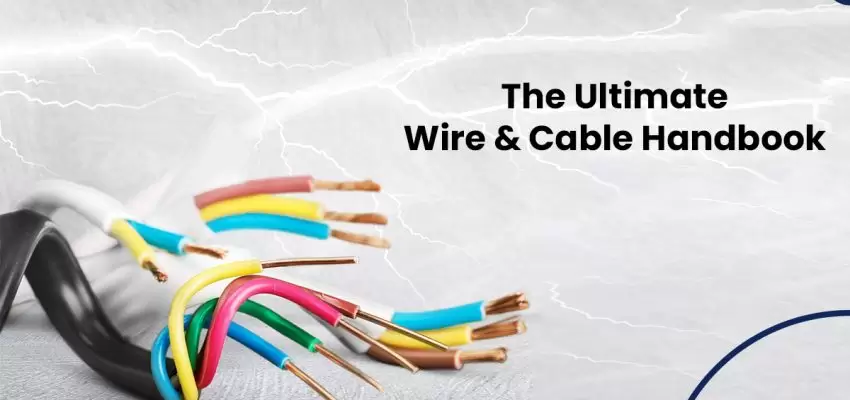
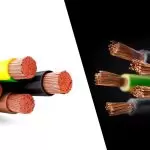
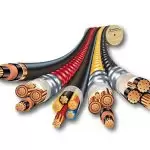
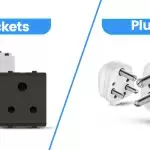
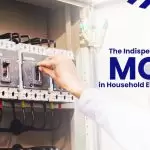

















Post A Comment